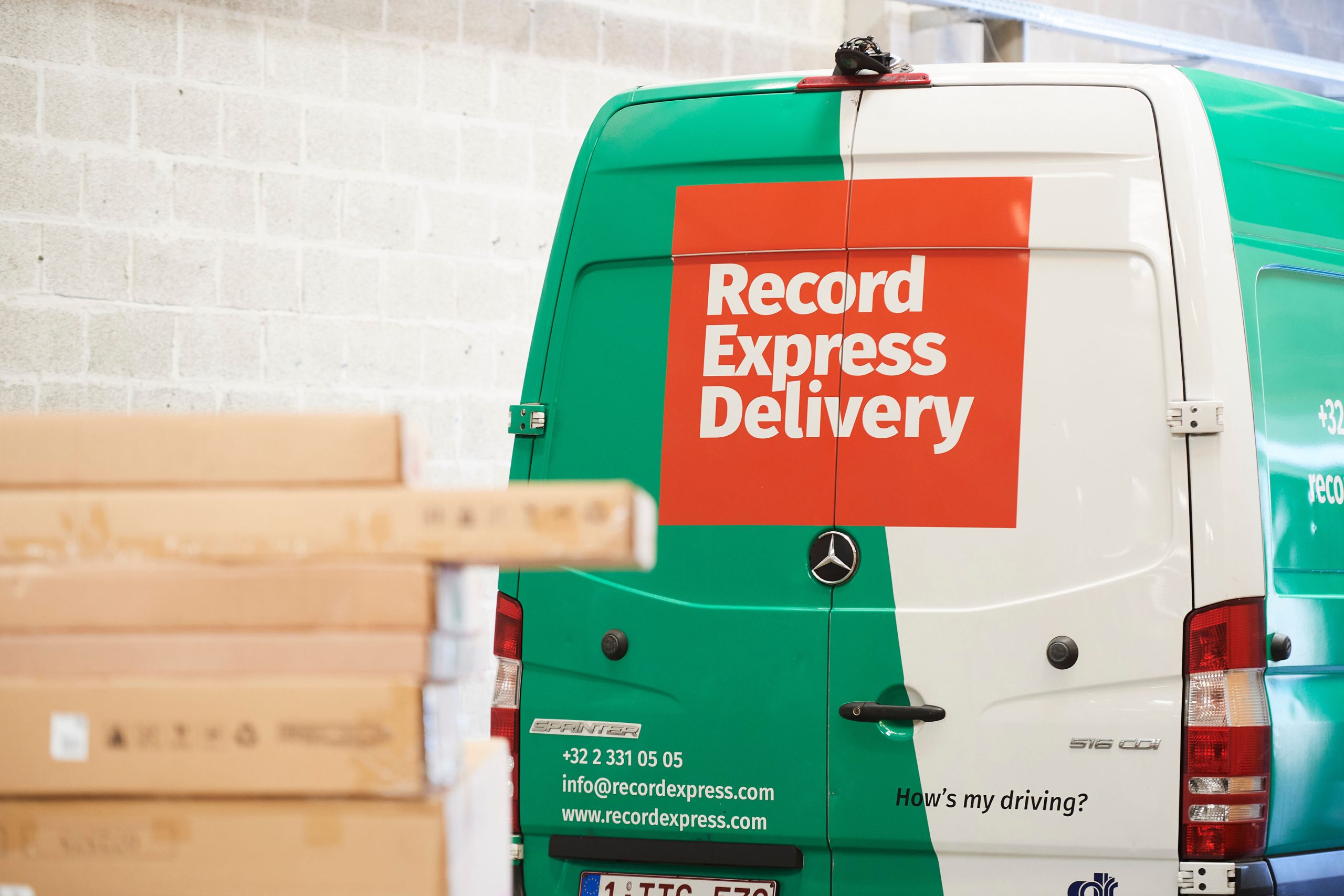Les bases de la logistique du commerce électronique
La logistique du commerce électronique fait référence aux processus qui acheminent les produits des détaillants en ligne vers les clients, couvrant l'exécution, la gestion des stocks, l'expédition et les retours. ENVOYER LE COLISHome / Logistique du commerce électronique / Les bases de la logistique du commerce électronique

Les bases de la logistique du commerce électronique
TL;DR : La logistique du commerce électronique fait référence aux processus qui acheminent les produits des détaillants en ligne vers les clients, couvrant l’exécution, la gestion des stocks, l’expédition et les retours. Pour les vendeurs en ligne, la logistique est essentielle à la satisfaction des clients, car elle influe sur la rapidité, les coûts et la fiabilité des livraisons. En Belgique et dans l’UE, la logistique du commerce électronique est façonnée par les attentes des consommateurs, les réseaux de livraison transfrontaliers et les exigences réglementaires en matière de TVA, de retours et de durabilité.
Qu’est-ce que la logistique du commerce électronique ?
La logistique du commerce électronique est la gestion des opérations de la chaîne d’approvisionnement qui soutiennent les ventes en ligne, y compris l’entreposage, l’exécution des commandes, la livraison et la logistique inverse(CNUCED). Contrairement à la logistique traditionnelle du commerce de détail, elle se concentre sur des expéditions plus petites et plus fréquentes directement vers les consommateurs.
- Stockage de l’inventaire dans des entrepôts ou des centres d’exécution des commandes
- Préparer, emballer et étiqueter les commandes des clients
- Expédition par colis, courrier ou réseaux express
- Suivi et notifications aux clients
- Gestion des retours et de la logistique inverse
À emporter : La logistique du commerce électronique garantit une livraison rapide et fiable des produits aux acheteurs en ligne.
Pourquoi la logistique est-elle importante pour les vendeurs en ligne ?
La logistique est cruciale dans le commerce électronique car elle façonne l’expérience du client et a un impact direct sur la réputation de la marque(OCDE).
- Une livraison rapide et fiable est l’un des principaux facteurs de renouvellement des achats.
- Les coûts de livraison influencent le taux d’abandon du panier
- Un suivi transparent renforce la confiance des clients
- Des procédures de retour efficaces encouragent la confiance des acheteurs
- Les performances logistiques soutiennent le positionnement concurrentiel
À retenir : Pour les vendeurs en ligne, la logistique n’est pas une fonction d’arrière-guichet, c’est un élément essentiel du service à la clientèle et de la croissance.
Quelles sont les principales composantes de la logistique du commerce électronique ?
La logistique du commerce électronique couvre de multiples processus interconnectés qui soutiennent la livraison des magasins en ligne(ISO).
- Exécution : préparation, emballage et expédition des commandes des clients.
- Gestion des stocks : suivi des stocks dans les différents entrepôts
- Livraison du dernier kilomètre : livraison au domicile du client ou à des points de retrait.
- Logistique inverse : traitement des retours et des échanges
- Technologie : plateformes qui relient les commandes aux réseaux logistiques
À retenir : Le succès de la logistique du commerce électronique dépend de l’intégration harmonieuse de l’exécution des commandes, du transport et de la technologie.
Quelles sont les options de livraison disponibles en matière de commerce électronique ?
Les vendeurs en ligne peuvent choisir parmi plusieurs modèles de livraison en fonction du coût, de la rapidité et des attentes du client(DHL).
- Expédition standard (2-5 jours)
- Livraison express ou le lendemain
- Livraison le jour même dans les zones urbaines
- Cliquez et retirez dans les magasins partenaires ou dans les casiers
- Livraison transfrontalière dans l’UE pour une plus grande portée sur le marché
Les détaillants mélangent souvent les options pour trouver un équilibre entre le prix abordable et les services à la clientèle de qualité.
À retenir : Proposer diverses options d’expédition permet aux vendeurs en ligne d’attirer et de fidéliser davantage de clients.
Quelle est la place des retours dans la logistique du commerce électronique ?
Les retours et la logistique inverse sont un élément essentiel du commerce électronique, car les acheteurs attendent des politiques de retour flexibles(Commission européenne – Droits des consommateurs).
- La législation européenne accorde aux consommateurs un droit de rétractation de 14 jours.
- Les retours nécessitent une collecte, une inspection et un réapprovisionnement efficaces.
- Les taux de retour élevés dans les secteurs de la mode et de l’électronique rendent l’efficacité cruciale.
- La logistique inverse peut s’avérer coûteuse en l’absence de systèmes adéquats
- La satisfaction du client dépend de la facilité de remboursement ou de remplacement
À retenir : Une procédure de retour efficace est un avantage concurrentiel dans le commerce de détail en ligne.
Comment la technologie soutient-elle la logistique du commerce électronique ?
La technologie sous-tend la logistique du commerce électronique grâce à l’automatisation, l’intégration et la visibilité(IBM).
- Systèmes de gestion d’entrepôts (WMS) pour l’exécution des commandes
- Systèmes de gestion des commandes (SGC) reliant les plates-formes de commerce électronique aux coursiers
- Outils d’IA pour la prévision de la demande et l’optimisation des stocks
- Capteurs IoT et suivi GPS pour une visibilité en temps réel
- Applications destinées aux clients avec mise à jour des commandes en temps réel
La technologie permet de traiter des volumes importants de petites commandes tout en maintenant la rapidité et la précision.
À emporter : La technologie est le fondement d’une logistique du commerce électronique évolutive et centrée sur le client.
Quels sont les défis à relever en matière de logistique du commerce électronique ?
La logistique du commerce électronique est confrontée à des défis en termes de coûts, de complexité et d’attentes des clients(CNUCED).
- Augmentation des coûts de la livraison du dernier kilomètre
- Des attentes élevées en matière de rapidité et de transparence
- TVA transfrontalière et questions de conformité
- Gérer les retours de manière rentable
- Pressions en faveur du développement durable pour réduire les émissions et les déchets d’emballage
Pour rester compétitifs, les détaillants en ligne doivent concilier rapidité et efficacité tout en respectant les normes de conformité et de durabilité de l’UE.
À retenir : La logistique du commerce électronique est un défi, mais elle est essentielle : le succès dépend de l’efficacité des opérations et de l’attention portée au client.
Comment Record Express soutient la logistique du commerce électronique en Belgique
Record Express aide les entreprises belges de commerce électronique à rationaliser l’exécution, la livraison et les retours grâce à des services de messagerie et de logistique fiables.
- Couverture nationale à Bruxelles, Anvers, Gand et au-delà
- Options de livraison le jour même, le lendemain et standard
- Intégration avec les plateformes de commerce électronique pour un flux de commandes sans faille
- Solutions de logistique inverse pour les retours et les échanges
- Pratiques de livraison durables, y compris les flottes de véhicules électriques et l’optimisation des itinéraires
En offrant des services logistiques flexibles et technologiques, Record Express permet aux vendeurs en ligne belges de répondre aux attentes croissantes des consommateurs tout en gérant les coûts.
🔗 Lecture connexe :
- Qu’est-ce qu’un service de courrier ?
- Expédition accélérée : Comment cela fonctionne-t-il ?
- Conformité de la logistique : Lois et normes
- Pratiques logistiques durables
- Services de courrier international vers la Belgique
FAQ
1. Que comprend la logistique du commerce électronique ?
Il comprend l’entreposage, l’exécution, la livraison, le suivi et la gestion des retours.
2. Pourquoi la vitesse de livraison est-elle importante dans le commerce de détail en ligne ?
Une livraison rapide favorise la satisfaction du client et réduit les abandons de panier.
3. Les entreprises de commerce électronique ont-elles besoin d’une logistique inverse ?
Oui, la gestion des retours est essentielle pour la conformité et la confiance des clients, en particulier dans les secteurs de la mode et de l’électronique.
4. Comment les petites boutiques en ligne peuvent-elles gérer la logistique ?
Elles font souvent appel à des sociétés de logistique tierces (3PL) ou de messagerie pour obtenir des solutions abordables et évolutives.
5. Record Express soutient-il les vendeurs en ligne ?
Yes-Record Express fournit des solutions logistiques sur mesure aux entreprises belges de commerce électronique, de la livraison le jour même au traitement des retours.
Sources d’information
- CNUCED – Commerce électronique et logistique commerciale
- OCDE – Commerce et logistique numériques
- ISO – Normes pour le commerce électronique et la logistique
- DHL – Aperçu de la logistique du commerce électronique
- Commission européenne – Droits des consommateurs et retours
- IBM – Solutions numériques pour la chaîne d’approvisionnement

Record Express was awarded a 59/100 score by EcoVadis, the global leader in sustainability ratings.